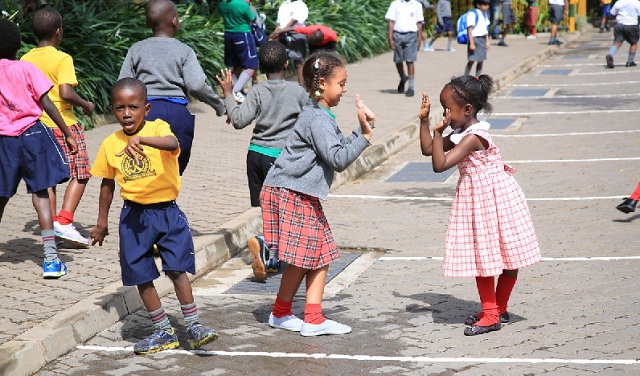
Kampala, Uganda | THE INDEPENDENT | The ongoing closure of schools has presented an advantage to Early Childhood Development and Child Nurturing which had been greatly abused in the recent past, a Ugandan education expert has said.
According to Elizabeth Kisakye, the Senior Education Officer in charge of Early Childhood Development at the Ministry of Education and Sports, the break will enable officials look again at laying a proper foundation for children.
Kisakye notes that whereas Early Childhood Development-ECD, is critical in the wellbeing, and future holistic development of the child, it had been focused on classroom learning where pre-schoolers are forced to cram numeracy and literacy.
She says that with the advent of nursery schools, Early Childhood Development was poorly defined and limited to formal learning that even when the ministry developed a learning framework for children at this level, it was ignored.
“The lockdown has placed the children where they belong. The parents can now ensure that they help the development of their children’s capabilities, health, physical growth, and good social habits. Ideally, this is what must be happening,” Kisakye notes.
Kisakye, also a child psychologist, says that bad early childhood education has negatively influenced children’s brain development. “Imagine, this young one between two to six years wakes up at 5 a.m. and return home late in the evening. Subjected to routine and rules.”
Fagyl Mande, a senior educationist, shares a similar perspective stressing that the infants are being put off the pressure and getting time to stay with their parents to learn life skills and values which will be of great importance at their next stage of development.
He notes that besides the ‘hyped madness’ of taking young children to school for early schooling, the ideal early childhood development should take place at home with parents giving the prime guidance and supervision. He adds that the lockdown has placed everything into normalcy with parents reclaiming their roles in child naturing.
Indeed the experience is good even in the eyes of the children. Gideon Mwanja, a seven-year-old of two working-class parents from Ntinda is excited about the experience. The joyful boy shares that he had never spent that much time with his parents.
However, to some parents spending all that long with children at home has been a nightmare. Diana Akello, a mother of two children all below eight, says that although she was also excited by having her children at home, she later discovered that it a difficult task and wish schools reopen soon.
Mandy acknowledges that some parents have parenting challenges. He rather notes that there was a missed opportunity for the government and non- government organizations to run programs guiding parents on how better they could do their duties to the benefit of their children most especially during such a long ‘God-given’ holiday.
Although some children have been able to get seemingly better development during this period, some parents are still hunting for reading materials for these learners to keep them busy. Kisakye despises the practice emphasizing that parents should have fully utilized the moment to understand their children, teach them morals among other important life skills fit for their age.
“Parents think that classwork learning is the only way their kids can get knowledge which is not true. A lot of learning takes place from things that happen at home daily; eating morals, playing with others, housework to develop their tactile abilities among others. All this form better child nurturing and form a firm foundation for future learning,” she argues.
****
URN
 The Independent Uganda: You get the Truth we Pay the Price
The Independent Uganda: You get the Truth we Pay the Price


